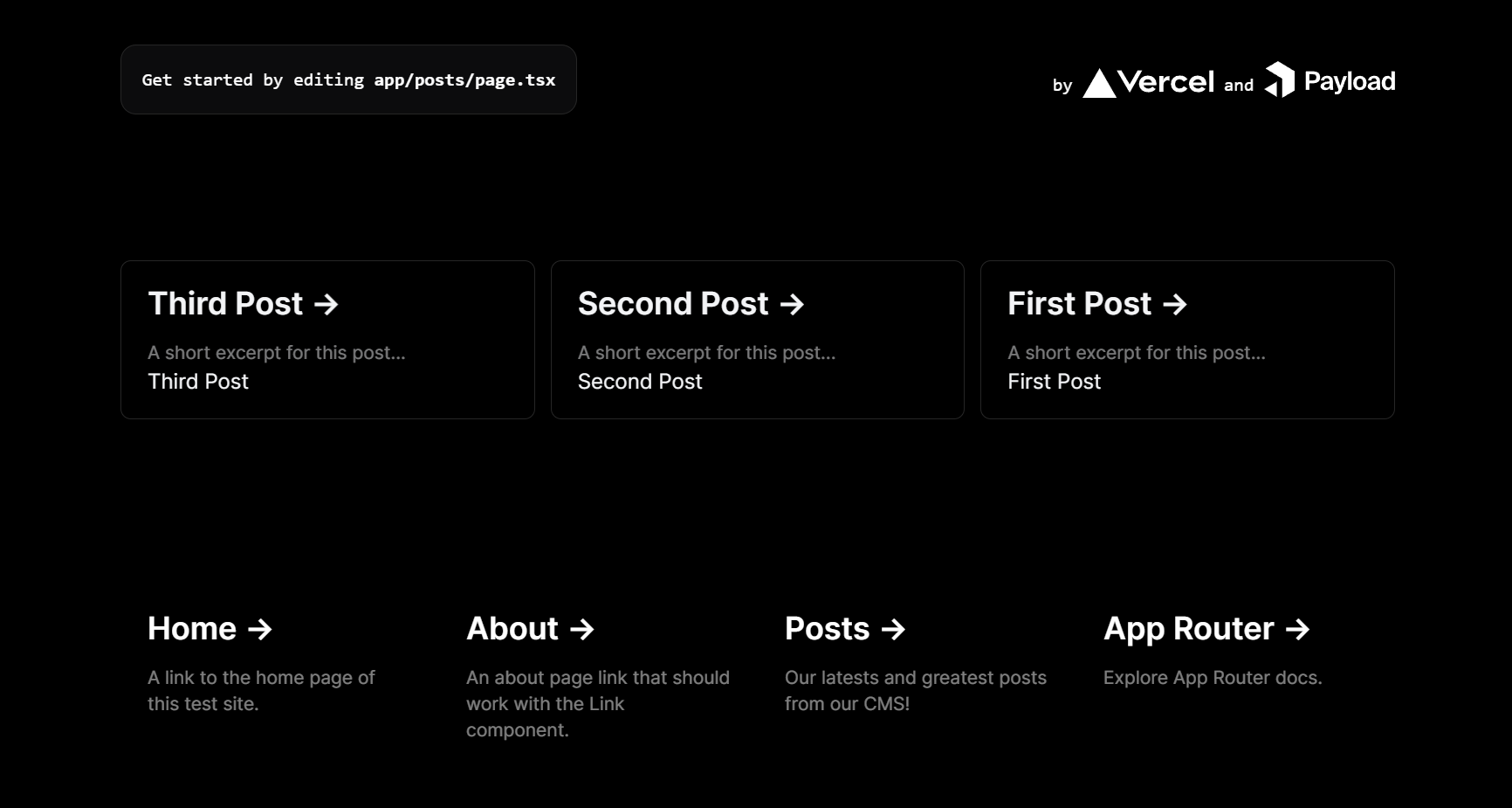This is a Next.js Payload CMS, pnpm and turbo monorepo starter project based on the superb Payload Remix repo here at ... https://github.com/payloadcms/remix-server
In this configuration the admin panel for Payload CMS will appear under the Next.js application as /admin and the Payload api endpoint under /api. There are security considerations when hosting both your frontend app and Payload CMS on the same domain and so you should consider whether this setup is approropiate for your application and security needs.
- Next.js 13 with App Router and custom Next.js server with Payload CMS integration NOTE: HMR in Next .js 13 is currently broken when using a custom server - see vercel/next.js#50400 vercel/next.js#50461
- Shared packages for Tailwind CSS, ESLint, and a custom UI kit
- Configured storybook installation with dark theme switcher for Tailwind CSS
- A MongoDB example docker-compose.yml configuration to start a fresh MongoDB instance if you need it.
Clone this repo and then copy
app/server/.env_example
to
app/server/.env
Generate your Payload CMS secret session key by calling...
node apps/server/generatePayloadSecret.js
and then update your .env PAYLOAD_SECRET accordingly.
Optionally start your local MongoDB database (assumes you have Docker or Docker Desktop installed)
cd mongodb (you must be in this dir)
mkdir data
./mongo.sh up
You can stop and clean up the Docker container and local network...
ctrl-C (to stop the container)
./mongo.sh down
If you don't already have pnpm installed - visit https://pnpm.io/ and follow the instructions there.
In the project root run
pnpm install
.. and then
pnpm dev
... to start the server and development environment, or
pnpm dev:seed
... to start with a seeded Payload CMS including an admin and guest user. Note: Although this repo is configured to run on HOSTNAME=127.0.0.1 - use http://localhost:3000 and http://localhost:3000/admin as opposed to 127.0.0.1 to prevent CORS errors in Payload CMS admin.
To run a production build
pnpm build followed by pnpm serve
pnpm clean will remove all build artifacts and node_modules
You can issues package and app specific commands by using pnpm filters - for example...
pnpm --filter @org/cms outdated
pnpm --filter @org/cms update
To start work on the uikit, change into the packages/uikit directory and run storybook
cd packages/uikit
pnpm storybook
The Next.js app directory and app router combined with RSC is pretty new tech and I confess I've not spent enough time on any of this to fully understand how RSC works. I understand the basics in terms of new wire format, SSR and client rendering - but there are some very specific requirements for data fetching from within an RSC component and Next.js, and so the posts example in this repo is calling the Payload api via fetch (as opposed to the local payload API). This works, and is reasonbly fast as the api endpoint and client app are all hosted on the same server. Take a look at Data Fetching using the Next.js App router and RSC for more information.
There are almost certainly other issues to consider, for example the current Next.js webpack configuration will not render Radix UI components, even if they are marked as 'use client'.
